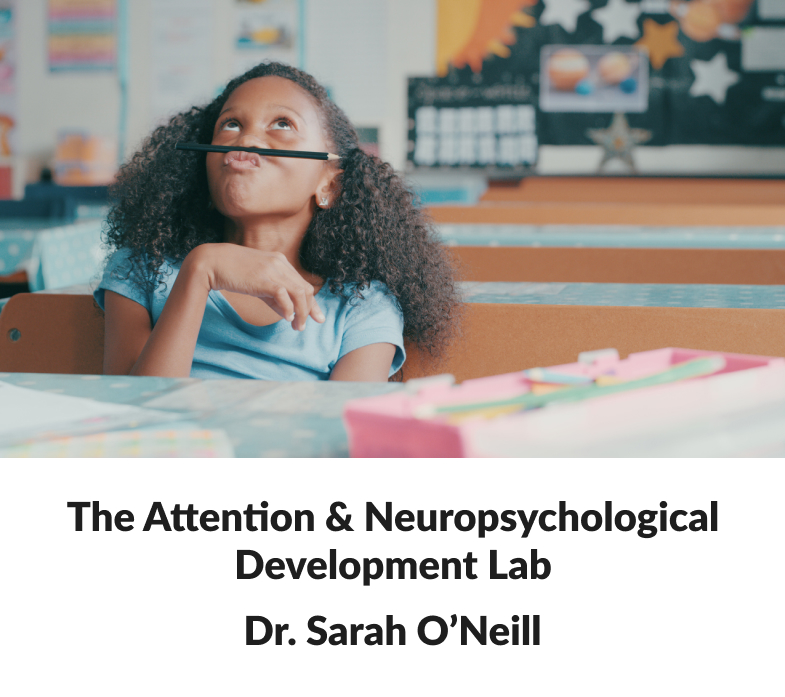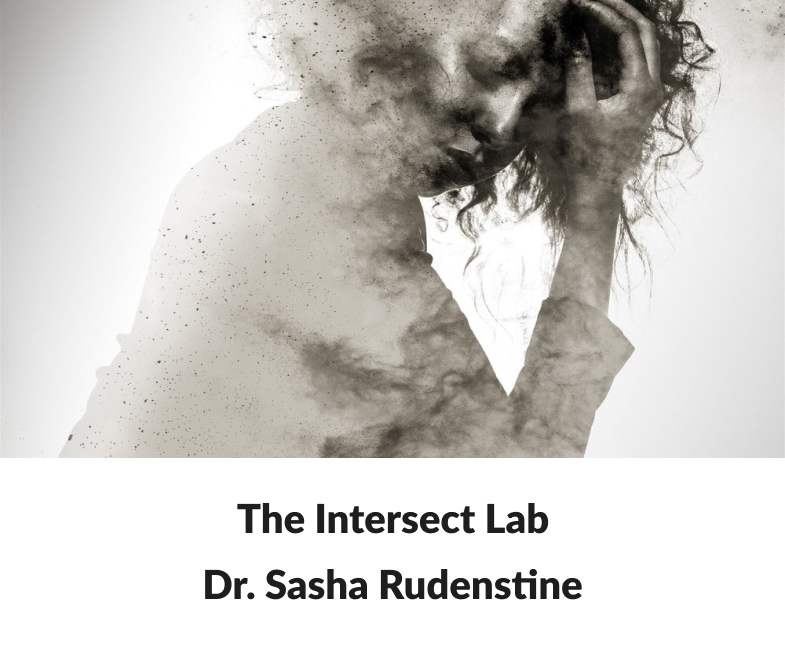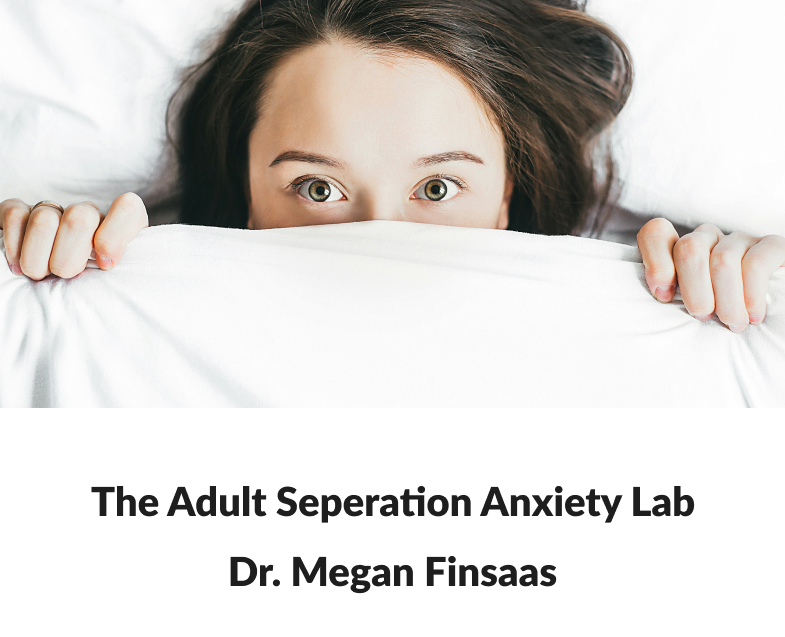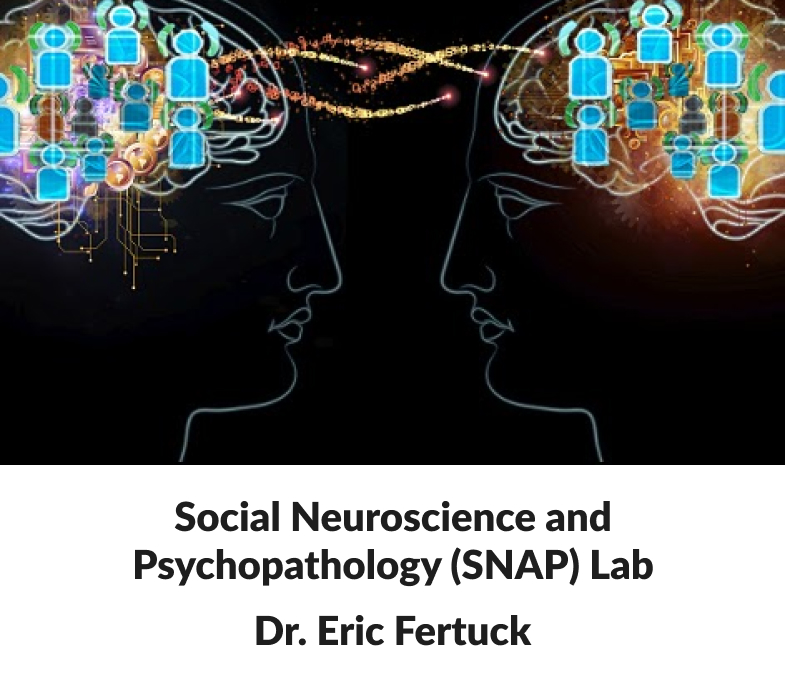Research Labs

Our Research and Scholarship Groups (RSGs) introduce students to both the research process as well as the work of the faculty. Students join one RSG in their first semester and remain in that RSG for years 1-3 in the program. The RSG experience includes weekly research lab meetings and opportunities to engage a wide range of research related activities. The RSG and its associated faculty lead (PI) provide mentorship on students Research and Scholarship Projects (RSPs), which begin in Semester Two and are completed by end of Semester Four. Each of the RSGs require five hours of commitment every week outside of the mandatory programmatic meeting requirements. Students can opt to remain in their RSG or change faculty advisors and RSGs in years 4 and beyond.

The ATTEND Lab studies the neuropsychological and psychosocial factors that increase risk for, and moderate the trajectory of Attention-Deficit/Hyperactivity Disorder (ADHD) across the lifespan. At the group level, this highly prevalent neurodevelopmental disorder is associated with significant functional impairment across several domains. These group-level characteristics, however, hide the incredible heterogeneity that characterizes the disorder, and that has made it extremely challenging for researchers to the identify the pathophysiology of the disorder, effective interventions that alter trajectories of the disorder, and the associated outcomes of ADHD, particularly at the level of the individual. The ATTEND Lab uses a multi-method approach to better understand the factors that affect the course of the disorder and the difficulties experienced in key areas of functioning, including interpersonal relationships, education and employment, and physical health, with the view to inform the development of evidence-based interventions for the disorder.
The ATTEND Lab has four main areas of research:
- What Role Does Executive Dysfunction Play In ADHD?
- Why Are Children and Adults With ADHD At Greater Risk Of Obesity?
- How Does Physical Exercise Impact Cognitive Functioning?
- Why Are Children With ADHD At Risk For Learning Problems?

The INTERSECT Lab is a clinical and epidemiological research program that examines the intersection of trajectories of well-being among urban historically minoritized individuals and dissects psychotherapy process to identify for whom psychotherapy "works", why and how.
For many urban historically minoritized individuals what are extraordinary events for those with greater resources, are daily lived experiences. And yet, while such stressors may become commonplace, they affect daily functioning and arguably long-term health outcomes. The INTERSECT Lab adopts a multi-level approach and ecological framework to understanding the cumulative effect of these chronic and yet quotidian experiences on well-being. We aim to examine and reassess frequently used terms such as trauma, health, family systems, and poverty to reflect the experiences that are relevant and specific to an urban marginalized population with the aim of promoting appropriate and targeted interventions and policies. In this vein, we are redefining “extraordinary” life course phenomenon.
Our psychotherapy process research aims to identify mechanisms of change and how such phenomenon operate differently across individuals and dyads.

Dr. Anglin’s research lab uses concepts in multicultural psychology (e.g., ethnic identity, racial microaggressions, neighborhood ethnic density) to understand social determinants of racial health disparities with a particular focus on racial disparities in psychosis and psychosis risk. Members of Dr. Anglin’s RSG are involved in any of several quantitative research projects designed to determine social and environmental risk factors for attenuated psychotic symptoms in racial and ethnic minority young people, and the clinical meaning of such symptoms. Student members of this RSG can also participate in experimental studies designed to determine the physiological and psychological stress response associated with racial exclusion. Students have ample opportunities to develop their own projects in Dr. Anglin’s lab and to contribute to manuscripts using Dr. Anglin’s data.

Dr. Finsaas' research focuses on separation anxiety in adulthood. Historically, separation anxiety was considered a problem of childhood. But recent research suggests that 1 in 15 people will experience separation anxiety in adulthood, many of them for the first time (as opposed to as a continuation from childhood). When experienced in adulthood, separation anxiety is associated with poorer treatment outcomes and impaired functioning, making it an important area of study with clear clinical value. Dr. Finsaas’ research on adult separation anxiety covers three areas: Relationship dynamics in adult separation anxiety. Attentional-representational processes in adult separation anxiety. Measurement of adult separation anxiety. In addition, Dr. Finsaas conducts research on statistical methods, specifically on non-additive effects (interactions) in linear regression.

Normal and pathological personality characteristics are influenced by many factors: social, emotional, cognitive, psychodynamic, and neurobiological. At Social Neuroscience and Psychopathology (SNAP) lab, we integrate these multiple levels to investigate the mechanisms of psychological disturbance and their treatment. Our lab advances a collaborative program of research at the interface of the clinical and research understanding of Borderline Personality Disorder (BPD), a condition characterized by intense concerns about abandonment, confusion about the self, emotional instability, and, for some, self-destructive and suicidal behaviors. What is unique about our team is that we harnesses these multiple perspectives to advance our understanding of the mechanisms of psychopathology and its treatment.
Last Updated: 08/23/2025 17:39
